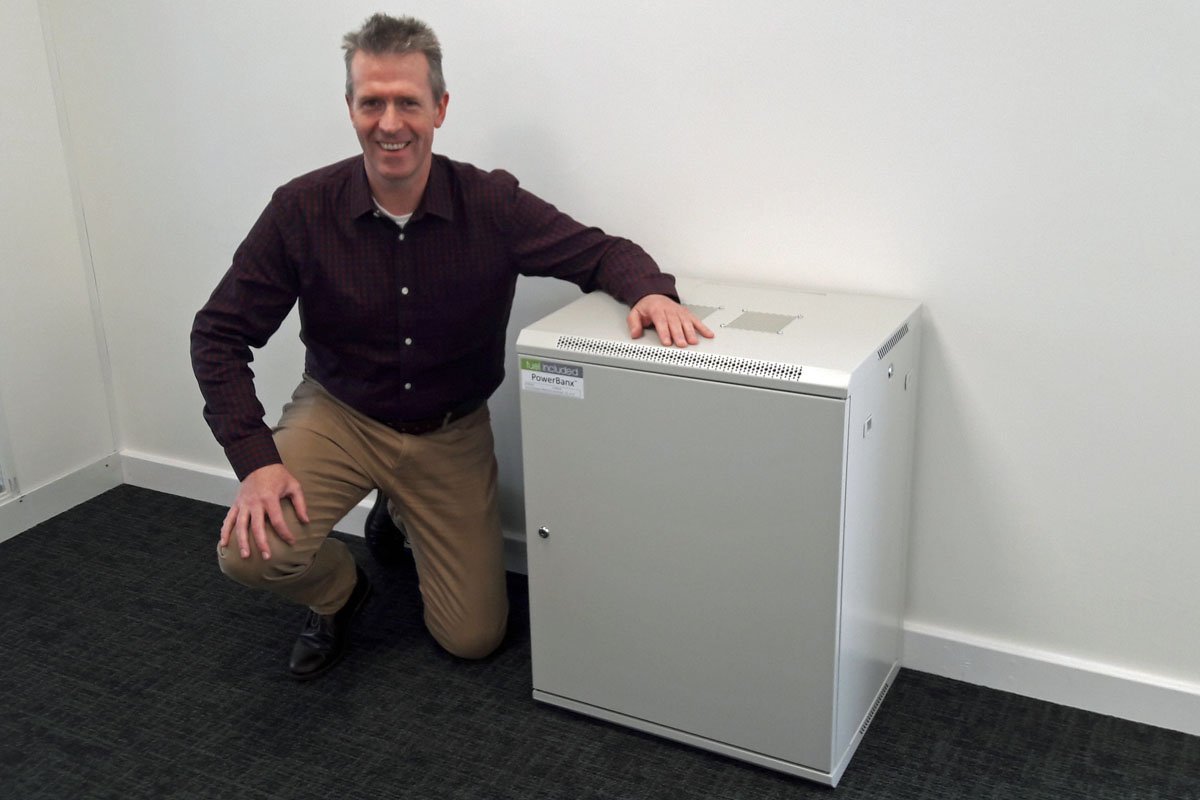Earlier this month, John Goodenough, Stanley Whittingham and Akira Yoshino were, of course, jointly awarded the 2019 Nobel Prize for Chemistry, as co-creators of the lithium-ion battery and therefore “a rechargeable world”.
The Nobel Foundation recognised not only the role of lightweight, portable battery technology for mobile phones, laptops and latterly electric vehicles, but also that it “can also store significant amounts of energy from solar and wind power, making possible a fossil fuel-free society”.

Tanjent’s PowerBanx X lithium-ion battery storage (Image: Tanjent)
“These energy-dense rechargeable batteries have revolutionised personal electronics, and transformed modern life around now-ubiquitous portable devices,” Kiwi Power’s head of optimisation, Thomas Jennings, says.
“Their ability to provide a repeatable, rapid response means batteries are now laying the foundations for renewable energy systems globally – providing vital resiliency and flexibility to enable wind and solar power to be integrated at scale. Simultaneously, through the electrification of transport, they offer the potential to finally wean humankind off its addiction to oil.”
Read more: Energy Storage News



